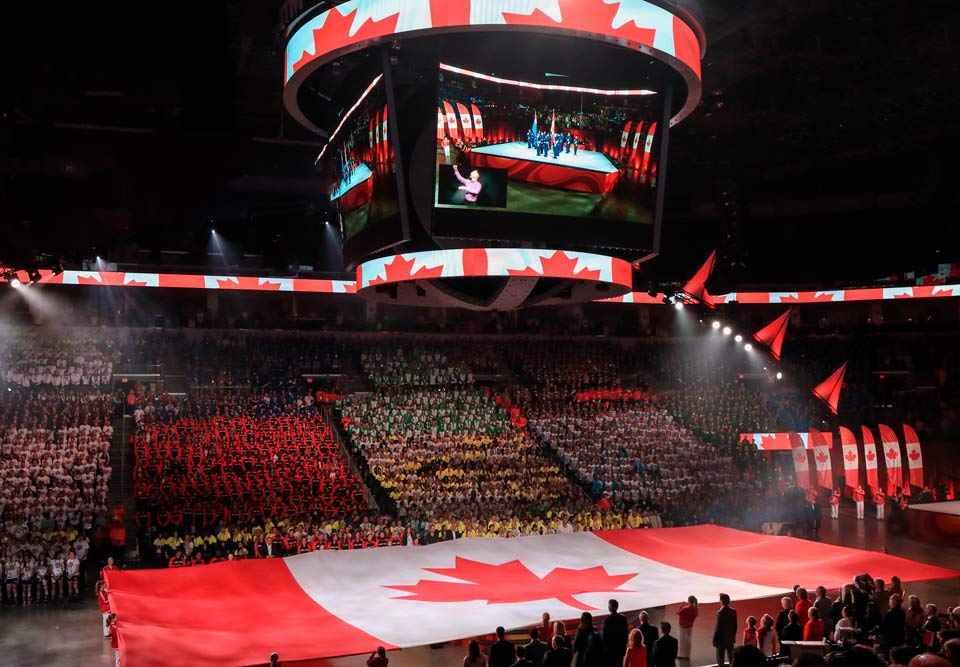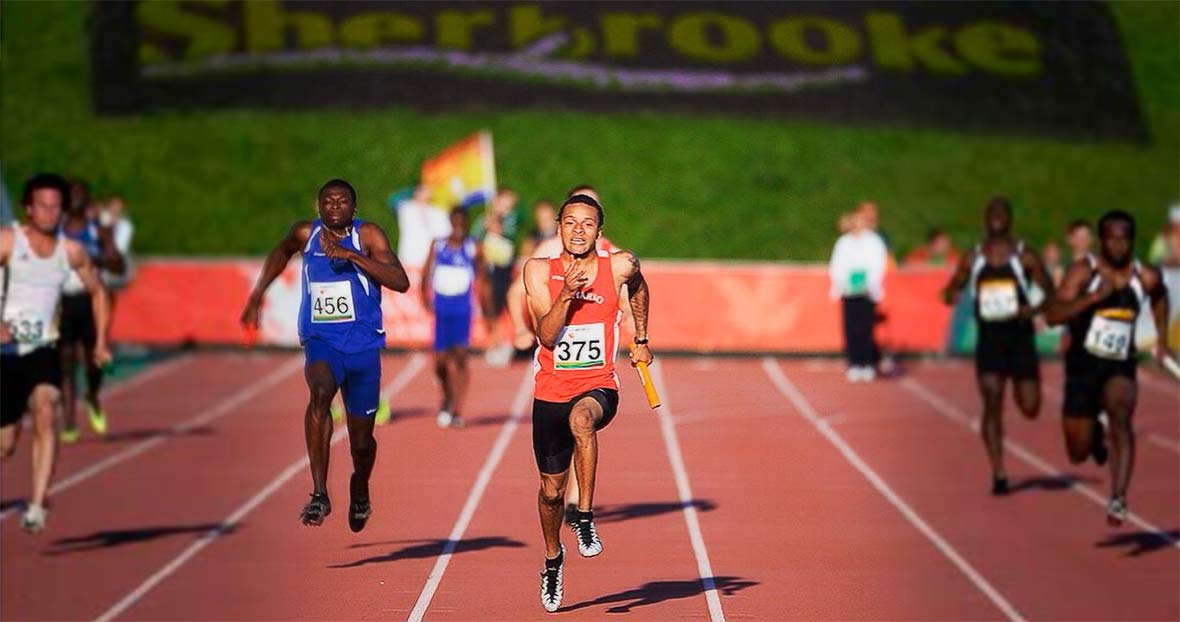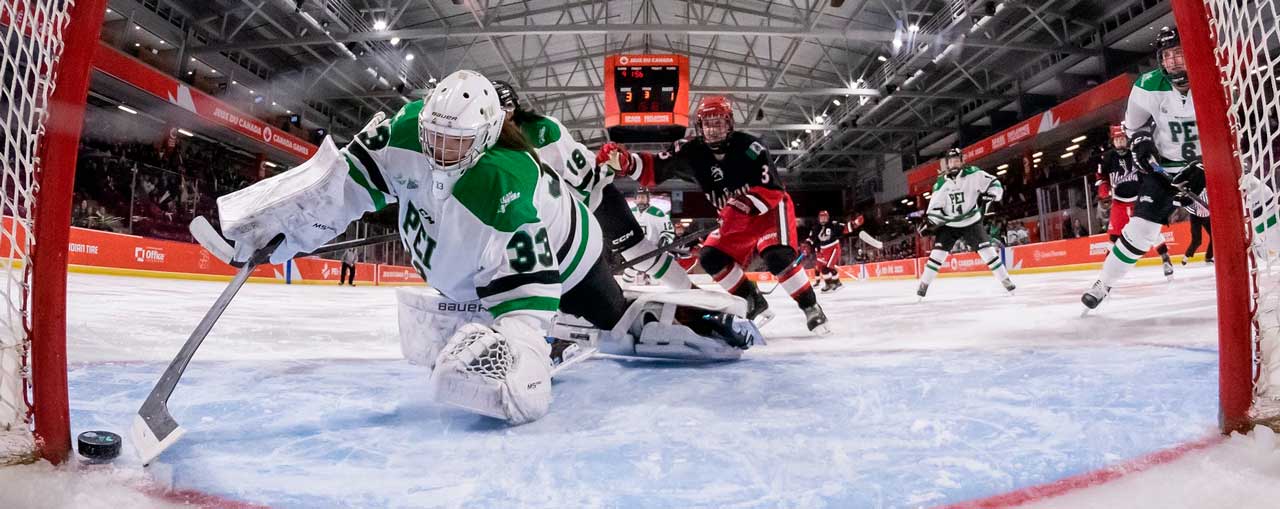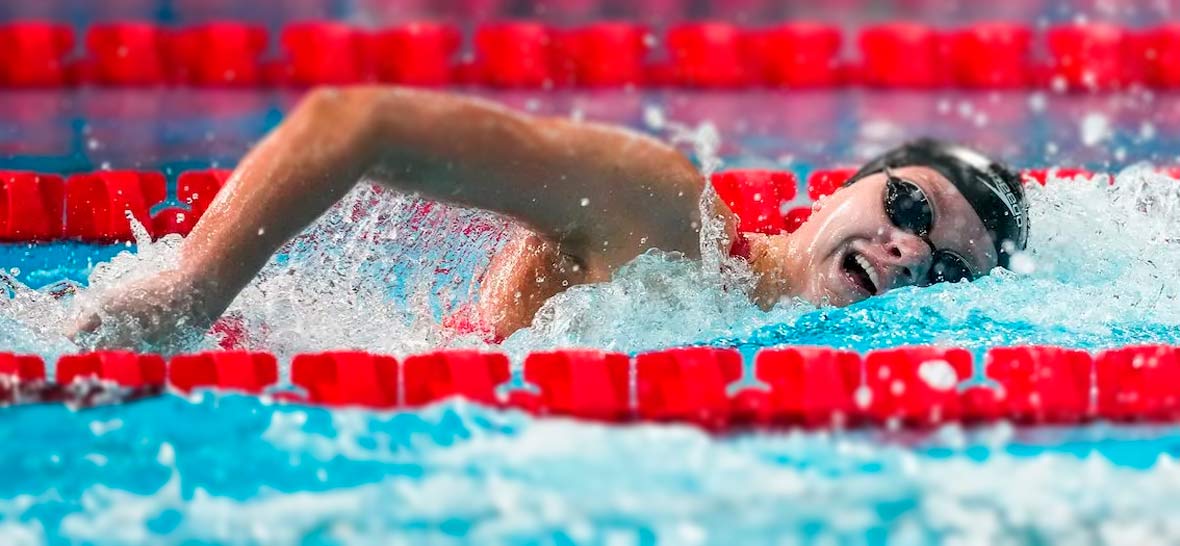The Canada Games: Timeline Through the Years
The Canada Games represent the largest multi-sport event in the country, bringing together talented amateur athletes from every province and territory. Beyond athletic competition, the Games play a crucial role in promoting culture, diversity, and Canadian unity. This article explores the history, sports, defining moments, and lasting legacy of this iconic event.

About the Canada Games
Founded in 1967 in Quebec City, the Canada Games aim to foster athletic excellence, athlete development, and cultural exchange between regions. They are held every two years, alternating between summer and winter. Each edition brings together over 2,000 athletes, coaches, and officials for two weeks of friendly yet intense competition.
Sport Categories
The Canada Games feature a variety of sports, some traditional, like athletics and hockey, and others less conventional, such as kayaking and squash. Each edition of the Games may introduce new sports to reflect changing trends and interests.
The Summer Games include sports like baseball, soccer, and swimming, while the Winter Games showcase sports such as alpine skiing, speed skating, and hockey.
Over the years, the Canada Games have adapted their sports program to include new disciplines, such as snowboarding and mountain biking, thus enriching the experience for participants and spectators alike.
Summer Games:
- Athletics
- Swimming
- Basketball
- Volleyball
- Soccer
- Cycling
- Rowing
- Canoe-Kayak
- Tennis
- Sailing
- Archery
- Baseball
- Softball
- Wrestling
- Triathlon (recently added)
- Beach Volleyball (recently added)
- Golf (recently added)
- Rugby Sevens (recently added)
Winter Games:
- Alpine Skiing
- Cross-Country Skiing
- Figure Skating
- Speed Skating
- Ice Hockey
- Curling
- Biathlon
- Gymnastics
- Badminton
- Judo
- Ringette
- Target Shooting
- Squash
- Freestyle Skiing (recently added)
- Snowboarding (recently added)
- Para-Alpine Skiing (recently added)
Teams and Athletes
All provinces and territories send delegations to the Games. Athletes are selected by their provincial or territorial sports federation based on their performance. For many, the Canada Games represent the first step towards a high-level sports career. Olympic stars such as Sidney Crosby, Hayley Wickenheiser, and Andre De Grasse began their careers at the Canada Games.
Previous Games
| Edition | Year | Host City and Province/Territory | Type | Highlights |
| 1st | 1967 | Quebec, Quebec | Winter | The very first Games, 557 athletes in 15 sports |
| 1st | 1969 | Halifax, Nova Scotia | Summer | Baseball and softball, the most popular sports |
| 1st | 1971 | Saskatoon, Saskatchewan | Winter | First Centennial Cup in PEI |
| 2nd | 1973 | New Westminster – Burnaby, BC | Summer | 30 athletes at the 1976 Olympics |
| 3rd | 1975 | Lethbridge, Alberta | Winter | Held across 12 cities in Alberta |
| 4th | 1977 | St. John’s, Newfoundland and Labrador | Summer | First individual medal for NL |
| 5th | 1979 | Brandon, Manitoba | Winter | Rise of a city of 38,000 inhabitants |
| 6th | 1981 | Thunder Bay, Ontario | Summer | Records in athletics and swimming, 7,000 volunteers |
| 7th | 1983 | Saguenay-Lac-St-Jean, Quebec | Winter | Gold medal in boxing for Lennox Lewis |
| 8th | 1985 | Saint John, New Brunswick | Summer | $15M in infrastructure legacies |
| 9th | 1987 | Cape Breton, Nova Scotia | Winter | First Winter Games in NS |
| 10th | 1989 | Saskatoon, Saskatchewan | Summer | Record of 8,500 volunteers |
| 11th | 1991 | Prince Edward Island | Winter | Slogan: “Welcome to your roots, Canada” |
| 12th | 1993 | Kamloops, British Columbia | Summer | 50 records broken for the city’s 100th anniversary |
| 13th | 1995 | Grande Prairie, Alberta | Winter | Smallest host city, $13M in infrastructure legacies |
| 14th | 1997 | Brandon, Manitoba | Summer | Economic impact of $35M |
| 15th | 1999 | Corner Brook, Newfoundland and Labrador | Winter | 50th anniversary of NL joining the Confederation |
| 16th | 2001 | London, Ontario | Summer | First participation of all 13 provinces/territories |
| 17th | 2003 | Bathurst – Campbellton, New Brunswick | Winter | Sidney Crosby wins the Roland Michener Award |
| 18th | 2005 | Regina, Saskatchewan | Summer | Centenary of Saskatchewan |
| 19th | 2007 | Whitehorse, Yukon | Winter | First Games in a territory |
| 20th | 2009 | Prince Edward Island | Summer | Triathlon and golf added to the program |
| 21st | 2011 | Halifax, Nova Scotia | Winter | Record enthusiasm on social media |
| 22nd | 2013 | Sherbrooke, Quebec | Summer | First carbon-neutral Games |
| 23rd | 2015 | Prince George, British Columbia | Winter | First Games in northern BC |
| 24th | 2017 | Winnipeg, Manitoba | Summer | 50th of the Games, 150th of Canada |
| 25th | 2019 | Red Deer, Alberta | Winter | New Gary W. Harris Canada Games Centre |
| 26th | 2022 | Niagara, Ontario | Summer | Julie Brousseau (swimming), 11 medals |
| 27th | 2023 | Prince Edward Island | Winter | New Eliyahu Centre, 3rd edition in PEI |
| 28th | 2025 | St. John’s, Newfoundland and Labrador | Summer | 2nd edition in Newfoundland after 1977 |
| 29th | 2027 | Quebec, Quebec | Winter | 60th anniversary of the Games |
Quebec 1967
The first Canada Winter Games took place in Quebec in 1967, bringing together 557 athletes in 15 sports. This historic edition paved the way for what would become the largest multi-sport event in the country. Ontario won the very first Canada Games flag.
Halifax 1969
Halifax hosted the first Canada Summer Games in 1969, featuring 715 athletes in 15 sports. Baseball and softball were the most popular disciplines, attracting over 200,000 spectators. Key elements of the Games, such as the official logo and song, were introduced during this edition.
Saskatoon 1971
The 1971 Winter Games in Saskatoon witnessed the first awarding of the Centennial Cup to Prince Edward Island. Six hundred eighty-seven athletes participated in 17 sports. The construction of Mount Blackstrap for the alpine skiing events was one of the significant legacies of these Games.
New Westminster – Burnaby 1973
One thousand six hundred seventy-six athletes took part in the 1973 Summer Games in New Westminster and Burnaby across 16 sports. More than 30 of them went on to represent Canada at the 1976 Olympic Games in Montreal. British Columbia won its first Canada Games flag.
Lethbridge 1975
The 1975 Winter Games in Lethbridge innovated by being held in 12 cities in southern Alberta in addition to the host city. Six hundred sixty-four athletes participated in 17 sports. Quebec won the flag, while Nova Scotia claimed the Centennial Cup thanks to a 36% improvement compared to the previous edition.
St. John’s 1977
St. John’s became the first city in Newfoundland and Labrador to host the Summer Games in 1977, with 1,709 athletes in 18 sports. The host province swept the Centennial Cup in front of its supporters, totalling 60 points compared to 36.5 at the previous Games. These Games left a significant legacy of new sports facilities.
Brandon 1979
With a population of just 38,000, Brandon brilliantly took on the challenge of organizing the 1979 Winter Games, which brought together 1,962 athletes in 17 sports. One in nine residents contributed to the success of the event. In addition to an infrastructure legacy, these Games proved the ability of small towns to aim high.
Thunder Bay 1981
Thunder Bay welcomed 1,813 athletes in 18 sports at the 1981 Summer Games, which were marked by numerous records in athletics and swimming. The 7,000 volunteers were essential to the success of this edition, which also bequeathed new facilities to the city.
Saguenay-Lac-St-Jean 1983
The Saguenay–Lac-Saint-Jean region organized memorable Winter Games in 1983, with 1,900 athletes in 19 sports. Future boxing champion Lennox Lewis won gold there, but it was the Quebec hosts who shone the brightest. An $8 million infrastructure legacy benefited the entire region.
Saint John 1985
After an initial setback, Saint John finally hosted the Summer Games in 1985, attracting 2,465 athletes in 18 sports. No fewer than 18 athletics records were broken. A $15 million legacy in new facilities boosted sports in the region.
Cape Breton 1987
The Games returned to Nova Scotia in 1987 with the winter edition in Cape Breton, a first for the province. One thousand nine hundred ninety-five athletes participated in 17 sports. The economic impact and infrastructure legacy were significant for the region.
Saskatoon 1989
Saskatoon became the first city to host both the Summer and Winter Games in 1989. A record number of 8,500 volunteers and 2,855 athletes in 16 sports contributed to the success of this edition, which left its mark in every school in Saskatchewan thanks to a souvenir book.
P.E.I. 1991
Under the theme “Welcome to your roots, Canada,” Prince Edward Island organized the 1991 Winter Games, a first where an entire province united for the event. More than 3,000 participants took part in 19 sports, and Yukon won its first-ever gold medals in the history of the Games.
Kamloops 1993
In 1993, Kamloops set the bar high for its 100th anniversary with Summer Games bringing together 4,032 participants in 17 sports. No less than 50 records were broken, and 9 provinces and territories won medals. The dedication of 8,400 volunteers left a lasting human and sporting legacy.
Grande Prairie 1995
With only 31,000 inhabitants, Grande Prairie is the smallest city to have hosted the Winter Games in 1995. But the entire community mobilized to make it a triumph, with 3,200 participants in 21 sports. These Games bequeathed $13 million in sports infrastructure to the region.
Brandon 1997
A violent storm did not prevent Brandon from successfully organizing the 1997 Summer Games, which welcomed 3,366 athletes in 19 sports, including future stars Steve Nash and Mike Weir. The event generated $35 million in economic impact and valuable facility legacies for the city.
Corner Brook 1999
To celebrate Newfoundland’s 50th anniversary in Confederation, Corner Brook organized memorable Winter Games in 1999, the province’s first. Two thousand five hundred seventy-five athletes participated in 21 sports. Colourful ceremonies paid tribute to the history and heritage of Newfoundland and Labrador.
London 2001
With 3,350 athletes in 18 sports, the 2001 London Games were a success across the board. For the first time, all 13 provinces and territories took part in swimming-integrated events for athletes with intellectual disabilities. The legacy includes 6,500 trained volunteers and improved facilities.
Bathurst – Campbellton 2003
The 2003 Winter Games in Bathurst-Campbellton brought together 3,200 participants in 21 sports, including a certain Sidney Crosby who won the Roland Michener Award. Quebec achieved the unprecedented feat of winning both the Flag and the Centennial Cup. New Games flag and logo were unveiled there.
Regina 2005
To mark Saskatchewan’s centennial, Regina presented remarkable Summer Games in 2005 with several firsts, such as women’s wrestling and diversity ambassadors. Four thousand five hundred participants took part in 16 sports. The legacies include major infrastructure investments and a fund for youth excellence.
Whitehorse 2007
In 2007, Whitehorse became the first territory to host the Canada Games. From February 23 to March 10, more than 4,500 athletes and coaches participated in 22 sports as part of an event that also showcased northern cultures. Many legacies, including the Canada Games Centre, still benefit the community.
Prince Edward Island 2009
Prince Edward Island once again welcomed the country in 2009 for Summer Games bringing together more than 4,400 participants in 18 sports, including triathlon and golf for the first time. Held in Summerside and Charlottetown, these Games generated $81.5 million in economic impact and valuable legacies in infrastructure and volunteerism.

Halifax 2011
Under the theme “Get in the Games,” the 2011 Winter Games in Halifax generated unprecedented enthusiasm on social media. Three thousand two hundred eight athletes participated in 20 sports, including cross-country skiing for athletes with physical disabilities, a first. These Games left lasting legacies valued at over $130 million.
Sherbrooke 2013
Sherbrooke set new standards in sustainable development with the 2013 Summer Games, a first in Canada. Bringing together 3,361 athletes in 19 sports, including fencing for the only time at the Summer Games, this eco-responsible event also generated significant economic, social, and sporting benefits for the region. The University of Sherbrooke, which served as the main village for athletes and officials, played a key role in the success of this event, promoting education and sport in a sustainable framework.
Prince George 2015
In 2015, Prince George became the first city in northern British Columbia to host the Winter Games, attracting over 2,400 athletes in 20 sports, including several new Olympic events such as slopestyle. A cultural festival also highlighted the unique diversity and dynamism of the host region.
Winnipeg 2017
To mark Canada’s 150th and the Games’ 50th anniversaries, Winnipeg organized the flamboyant Summer Games in 2017. More than 4,000 athletes participated in 16 sports, while artists from each province and territory offered memorable performances. Numerous sporting legacies and a fund for athletes resulted from these Games.
Red Deer 2019
Despite the glacial cold, the 2019 Winter Games in Red Deer warmed hearts and thrilled crowds. More than 2,600 athletes took part in 19 sports, and a cultural festival showcased Alberta artists. The new Gary W. Harris Centre is one of the many legacies that will benefit future generations.
Niagara 2022
Postponed by the pandemic, the 2022 Summer Games in Niagara were finally able to celebrate Canada’s young athletes in all their diversity. Some 5,000 athletes participated in 18 sports, several of whom broke records, such as swimmer Julie Brousseau with 11 medals. New facilities and dynamic cultural events left a lasting mark.

Prince Edward Island 2023
For a third time, Prince Edward Island warmly welcomed the Winter Games in 2023, the largest ever organized in the province. Three thousand six hundred athletes and 5,000 volunteers took part in 150 events across 20 sports, including new additions like karate and women’s boxing. The new Eliyahu Centre will be a key legacy for athletes and the community.
Upcoming Games
St. John’s 2025
From August 8 to 25, 2025, St. John’s will host the first Summer Games in Newfoundland and Labrador since 1977. Over 4,000 athletes are expected to compete in 18 sports, including rugby sevens, sailing, and tennis, in both renovated and newly constructed facilities. Beyond the athletic competitions, visitors will have the opportunity to experience the warm hospitality and unique culture of Canada’s easternmost province.
Québec 2027
Sixty years after hosting the very first Winter Games in 1967, Québec is set to relive this landmark event from February 26 to March 15, 2027. The schedule includes competitions in 17 sports, such as alpine skiing, curling, figure skating, and several emerging sports. The city plans exciting innovations to celebrate the enduring legacy of the Games while propelling a new generation of athletes toward excellence.
Results and Records
In the medal standings, Ontario leads with 2,778 podiums, followed by Québec with 2,456 and British Columbia with 1,877. Notable records include Tom Ponting’s 11 swimming medals in 1977 and Julie Brousseau’s in 2022, as well as the Quebec women’s hockey team’s five consecutive titles from 1991 to 2007. Each edition of the Games produces its share of sporting feats and inspiring moments.

| Edition | Year | Remarkable Performance |
| 26th | 2022 | Julie Brousseau (swimming), 11 medals |
| 24th | 2017 | Record crowd of 7,000 spectators for the men’s baseball final |
| 23rd | 2015 | First inclusion of ski cross and snowboard cross |
| 22nd | 2013 | Fencing featured for the only time at the Summer Games |
| 20th | 2009 | First edition with triathlon and golf included |
| 18th | 2005 | 100m record set at 10.15 seconds by Sam Effah |
| 16th | 2001 | First integration of swimming for intellectually disabled athletes |
| 14th | 1997 | Participation of future stars Steve Nash and Mike Weir |
| 12th | 1993 | 50 records broken in various disciplines |
| 11th | 1991 | First gold medals for Yukon (cross-country skiing) |
| 8th | 1985 | 18 records broken in athletics |
| 7th | 1983 | Gold medal in boxing for future champion Lennox Lewis |
| 6th | 1981 | Numerous records in athletics and swimming |
| 4th | 1977 | 11 swimming medals by Tom Ponting |
| 1st | 1969 | Baseball and softball, most popular sports with 200,000 spectators |
For over 50 years, the Canada Games have celebrated the best of Canadian sport and spirit. They unite the country around a passion for excellence and self-improvement while showcasing the diversity of our culture. With the next editions scheduled for St. John’s in 2025 and Quebec City in 2027, the future of this iconic event looks bright and inspiring for all Canadians.
Please note that this article provides an overview of the Canada Games based on available historical and contextual information. For the latest information, schedules and updates, please visit the official Canada Games website.
